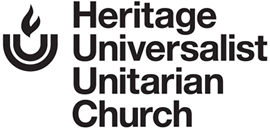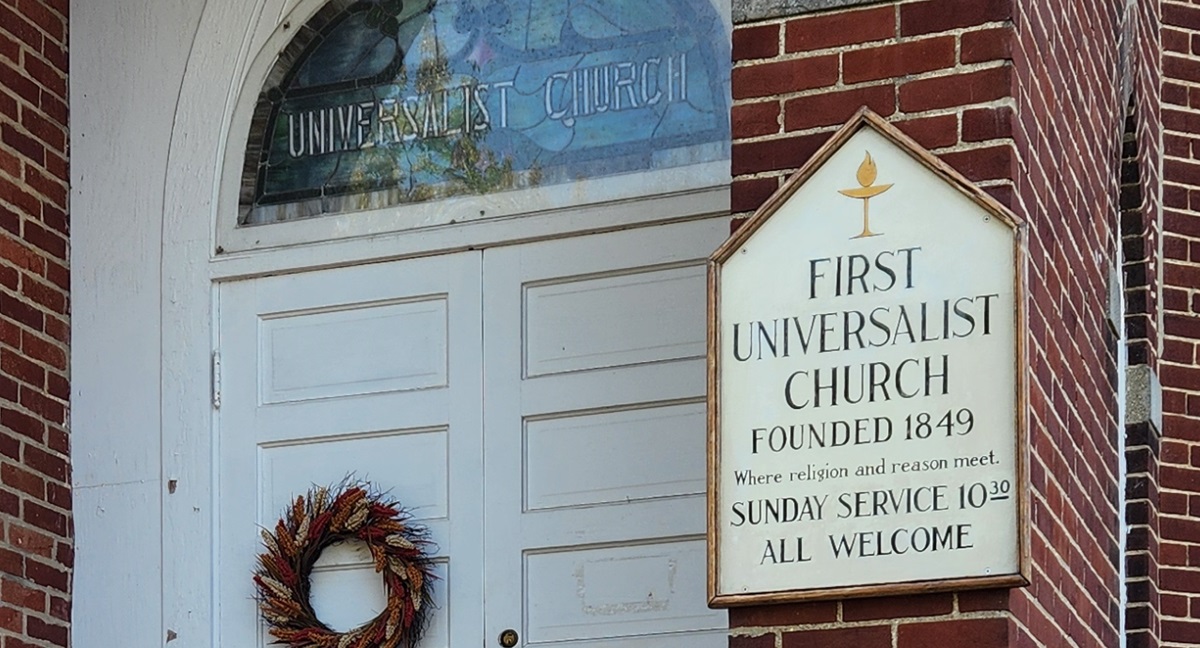Past Glories and Present Controversies Inform Discussions at the Convocation
by Russ Araujo
Rebecca Pace and I both attended as Heritage Church members at the annual Universalist Convocation, which was held September 20 through 22, 2024, at the First Universalist Church of Eldorado, Ohio. Approximately 25 people attended.
Early in the Convocation, it was noted that some people are Universalists due to a belief in a deity that loves all people too much to condemn anyone to hell, and that some other people are Universalists because they believe in the idea that everyone should be included, with no one left out or left behind. Thus, some Universalists today may be theists while others may be nontheists.
In the Sunday morning worship service that concluded the Convocation, Rev. Derek Parker, minister of the host church, noted that Universalism had once thrived in Ohio and in the nation as a whole. The decline of Universalism as a religious denomination can be attributed, in part, to the adoption of some Universalist ideas among other denominations, leaving the Universalists with a message that was not unique. Rev. Parker identified several denominations that have absorbed a universalist ethic somewhat, including Quakers, Episcopalians, Church of the Brethren, United Church of Christ, and some Baptists. He believes that the inclusion of Universalist ideas in these other religious movements is only a partial inclusion, and does not match the full Universalist message. Rev. Derek asked, “If we don’t preserve and spread the message of Universalism, who will?”
The Convocation opened Friday with an informal reception for attendees and speakers.
On Saturday, the keynote speaker, Rev. Dr. Susan Ritchie, spoke on “How Universalists Have Talked About Principles and Faith.”
Dr. Ritchie stated that Universalists have always felt uncomfortable creating any kind of statement of faith. She traced the history of this, starting with the statement developed at the first multi-congregation assembly of Universalists in 1790, the Winchester Profession of Faith in 1803, the Boston Principles of 1899, and the Washington Avowal of 1935. She eventually uncovered an inherent paradox of Universalists trying to establish what they believe; how can any religion that claims universality create a “We believe” statement? To draw a boundary and say “We believe this” is to acknowledge that there are other people who do not believe it, who are not part of our “We” and who are therefore “other.” How do we address this situation while claiming universality?
One theme that ran through Dr. Ritchie’s talk is that when Universalists develop a new statement of faith or set of principles, the statements or principles are not well liked when initially developed, but may go on to become cherished. Dr. Ritchie said this pattern held true for the Seven Principles, first introduced at General Assembly in 1983.
Saturday afternoon involved a panel discussion on “Principles, Sacred Language, and the Future We Build.” The panel members were: Rev. Derek Parker; Rev. Dr. Susan Richie; Rev. Dr. Joel Tishkin, Minister of the UU Church of Muncie, Indiana; and Rev. Richard Trudeau, Minister Emeritus of the UU Church of Weymouth, Massachusetts.
After the keynote address and also during the panel discussion, time was established for interaction between the speaker(s) and attendees. Some of these discussions went briefly into the controversies surrounding changes in the Unitarian Universalist Association and the change from principles to values in Article II of the UUA’s bylaws. At one point, a statement was made that the UUA “is us” and is democratic, and if people don’t like the UUA they can change it. Some people responded by saying the UUA is not democratic, citing, among other things, the difficulty of running as a petition candidate for a Board seat, and the fact that the recent election for association president offered only one candidate.
A brief business meeting was also part of the Convocation. The minutes of the prior meeting were noted, a treasurer’s report was provided, and Convocation officers, having been previously voted upon online, were affirmed. The Heart of Universalism Award was given to Rev. Dr. Richard Gilbert and his wife Joyce Gilbert. Dr. Gilbert’s contributions have been many, and his involvement in Universalism goes back to the 1959 Universalist Assembly at which the merger with the Unitarians was approved (with the details still to be worked out and final consolidation voted upon in 1961). The Gilberts were unable to attend this year’s Convocation.
The Convocation took place in the Eldorado church, built in 1909. Its architecture reflects Universalism’s Christian roots, as seen in some pictures below.
If you have any questions about the Convocation, feel free to ask Rebecca Pace or Russ Araujo. They can be reached at these email addresses, respectively.![]()
![]()
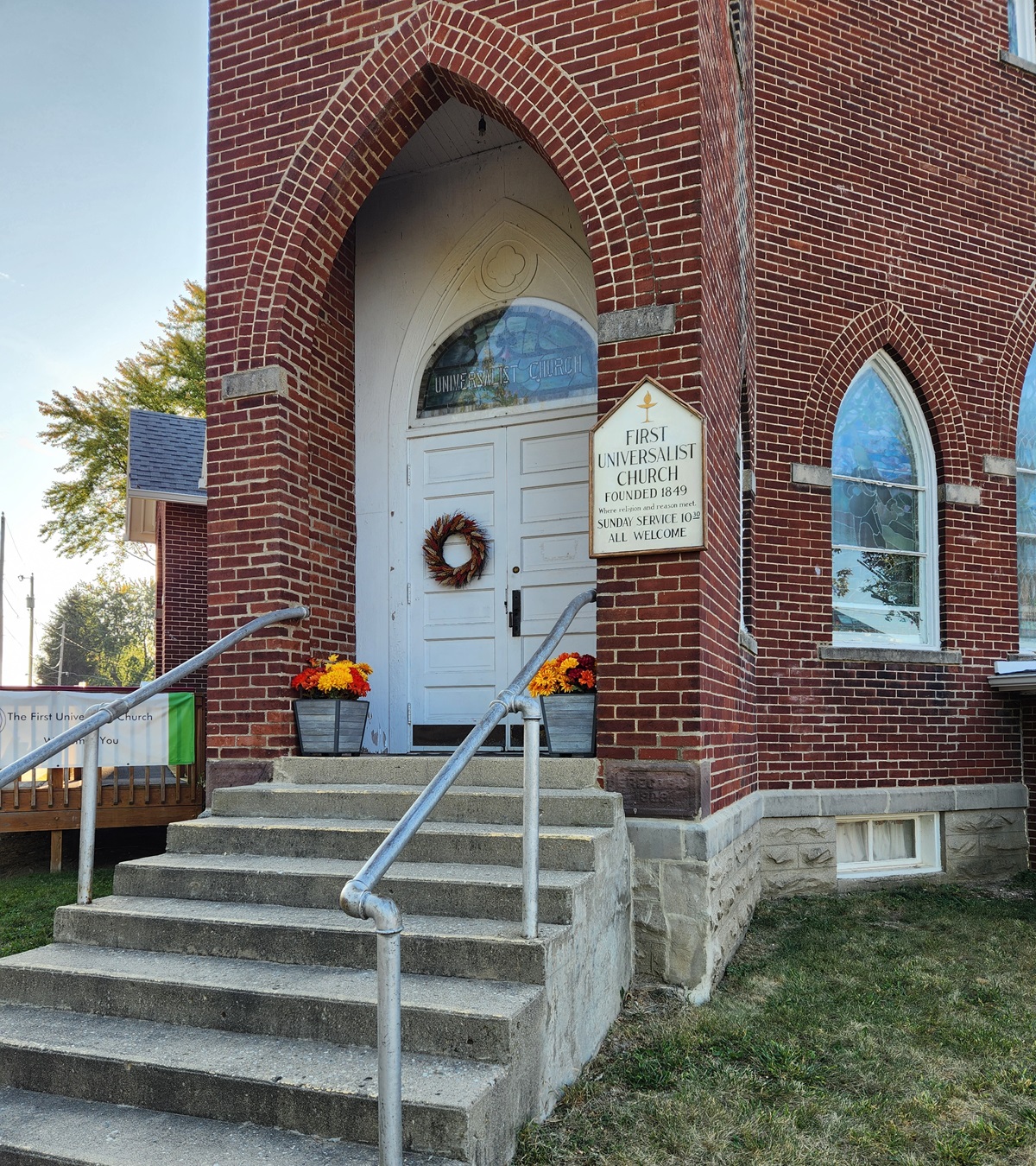
Entry to the First Universalist Church of Eldorado, Ohio. A side entrance offers a ramp.
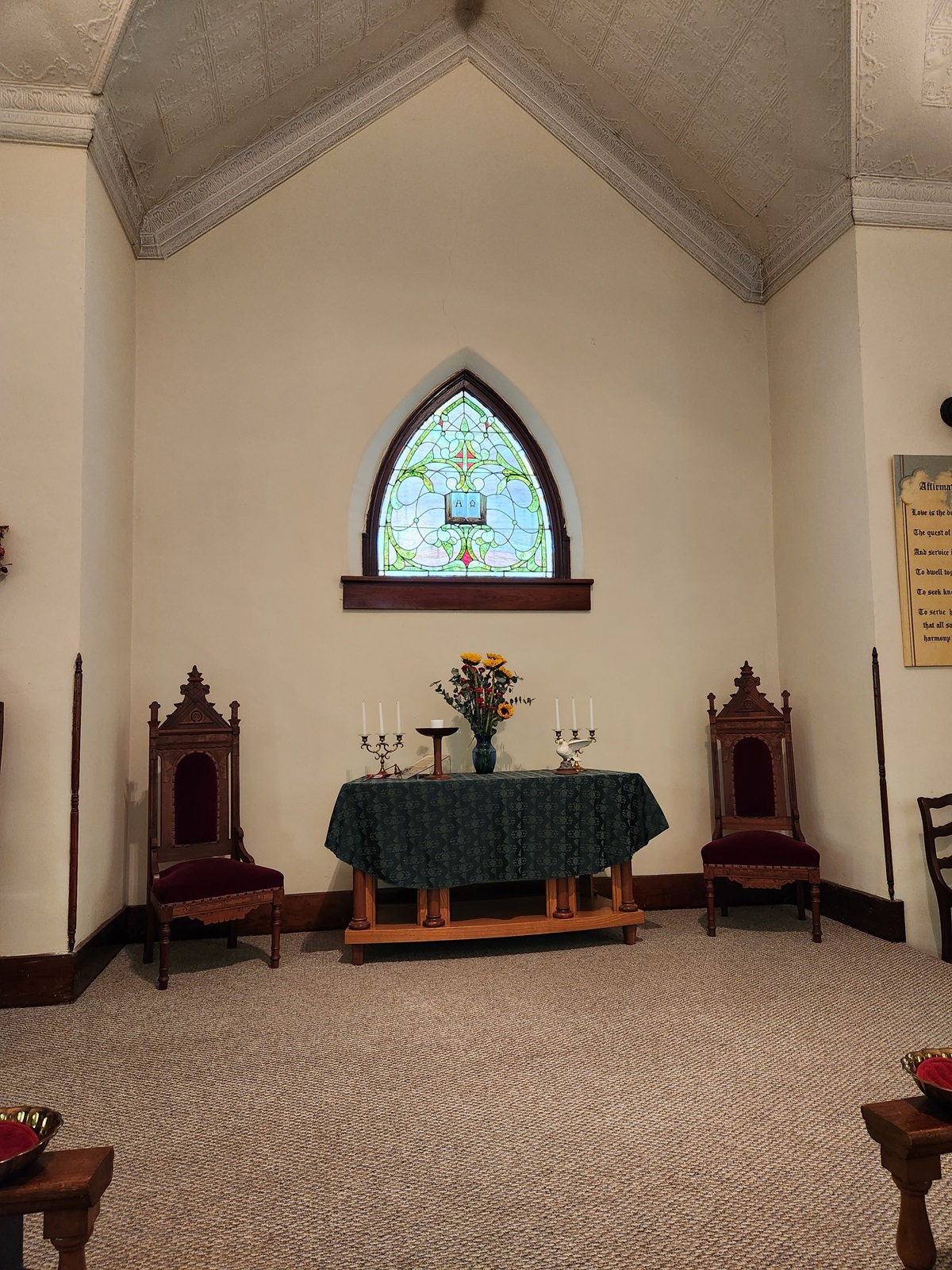
The center of the chancel at the First Universalist Church of Eldorado.
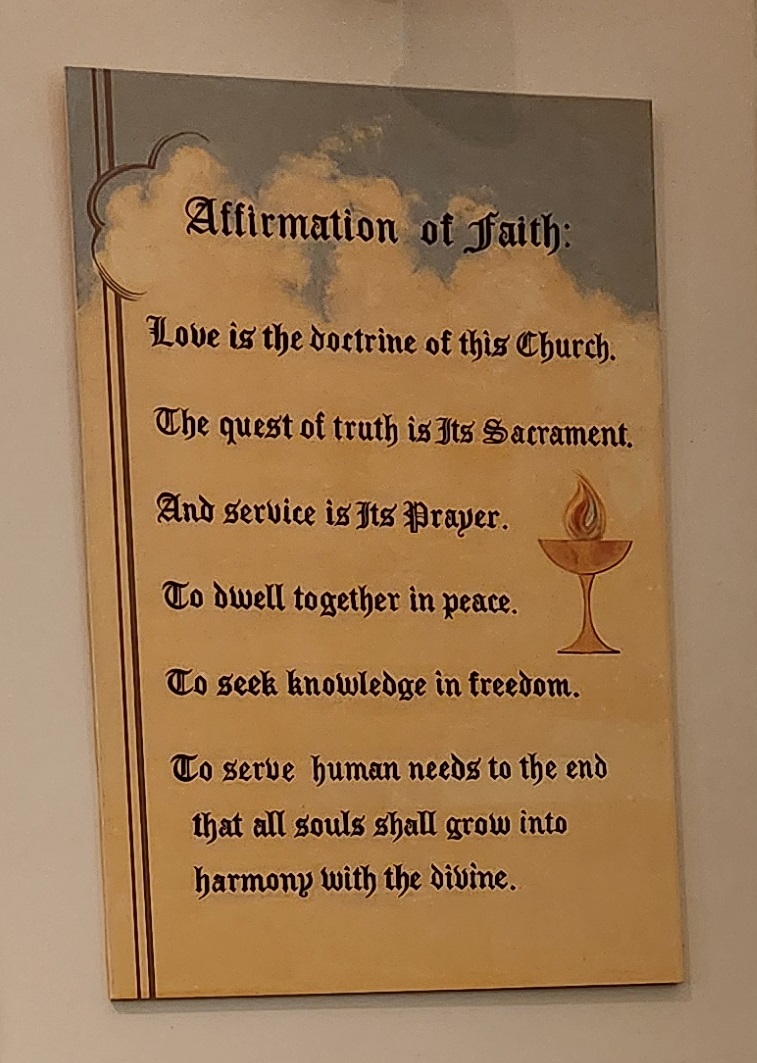
The Covenant used at the Eldorado church has similarities to the one used at Heritage Church. On Sunday morning, the spoken covenant had the additional line, “Thus do we covenant with each other and with God.”
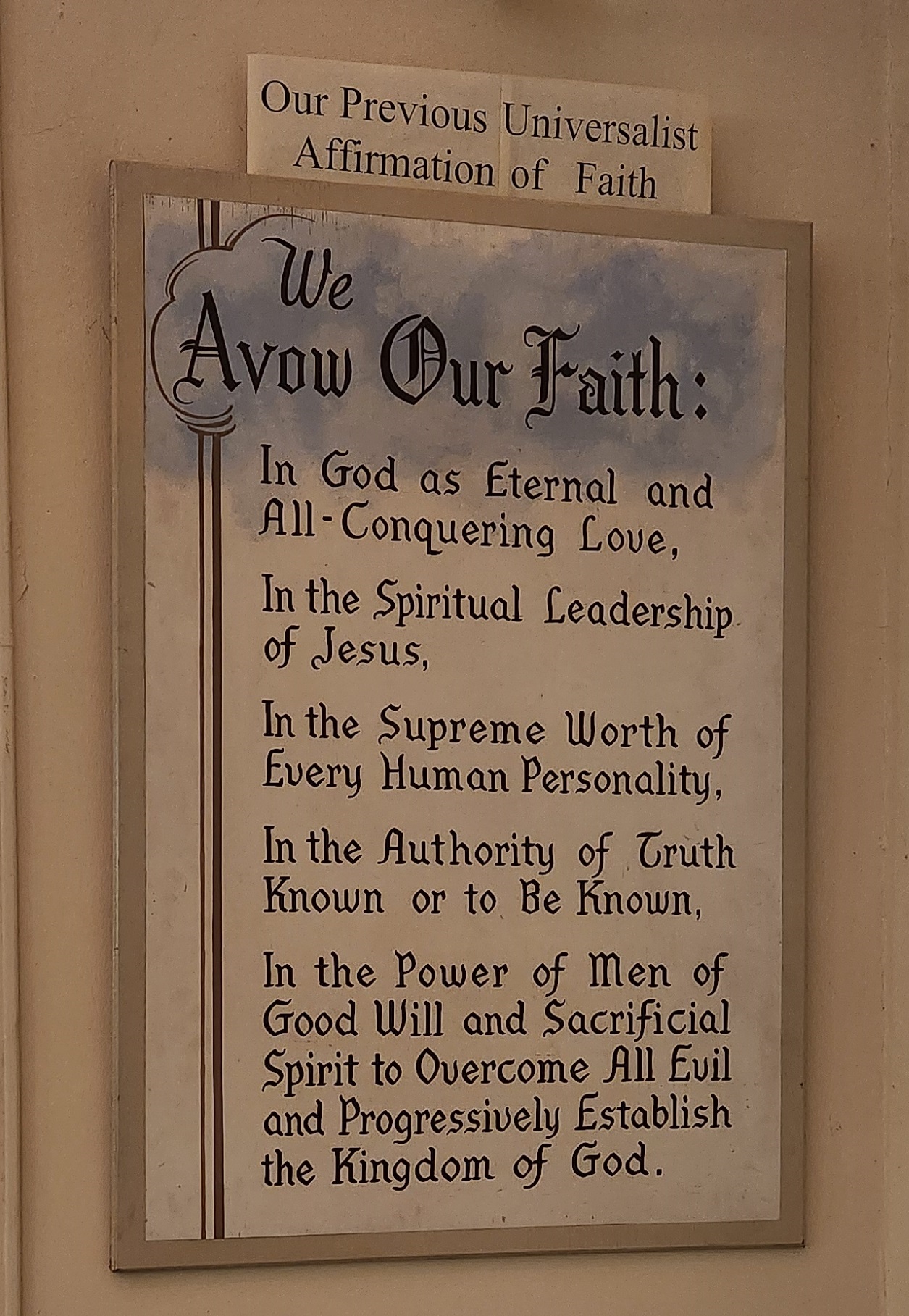
A prior Universalist declaration of faith, the 1935 Washington Avowal, is posted on the church walls.
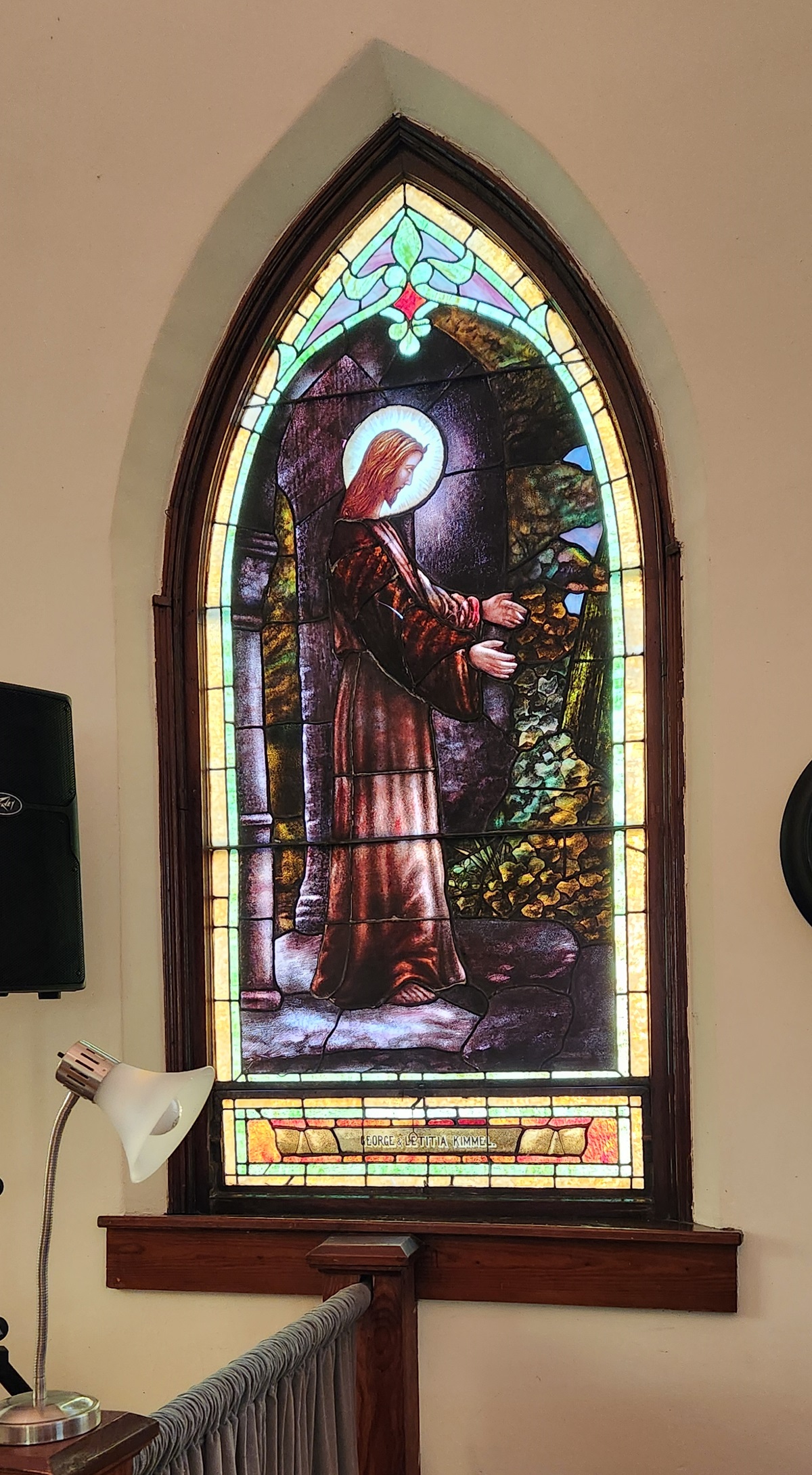
This stained-glass window at the Eldorado church focuses on the figure of Christ.
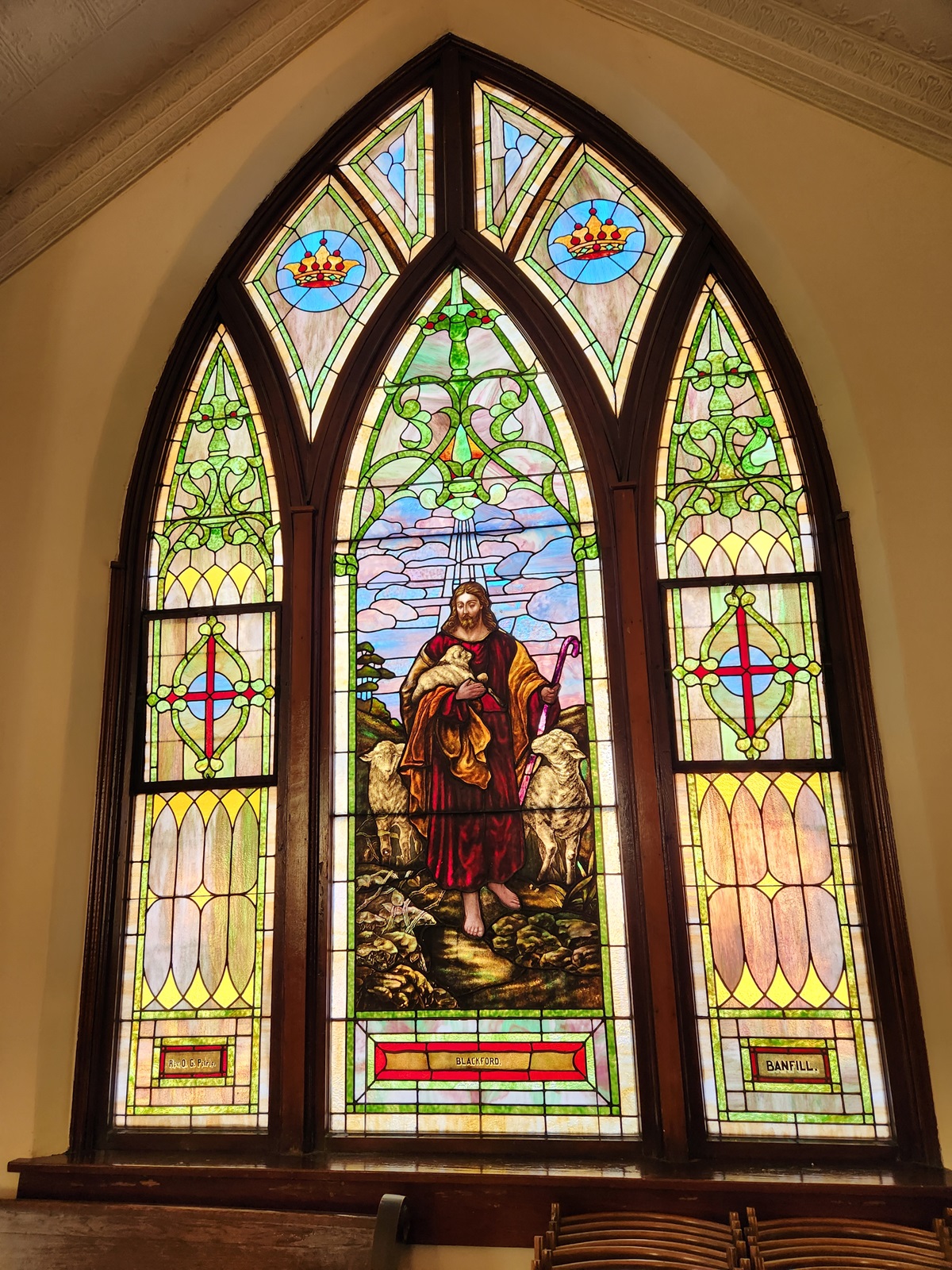
This stained-glass window at the First Universalist Church of Eldorado depicts Jesus’ parable of the lost sheep, in which the good shepherd leaves his flock temporarily to go find one lost sheep.
All images courtesy of Russ Araujo
